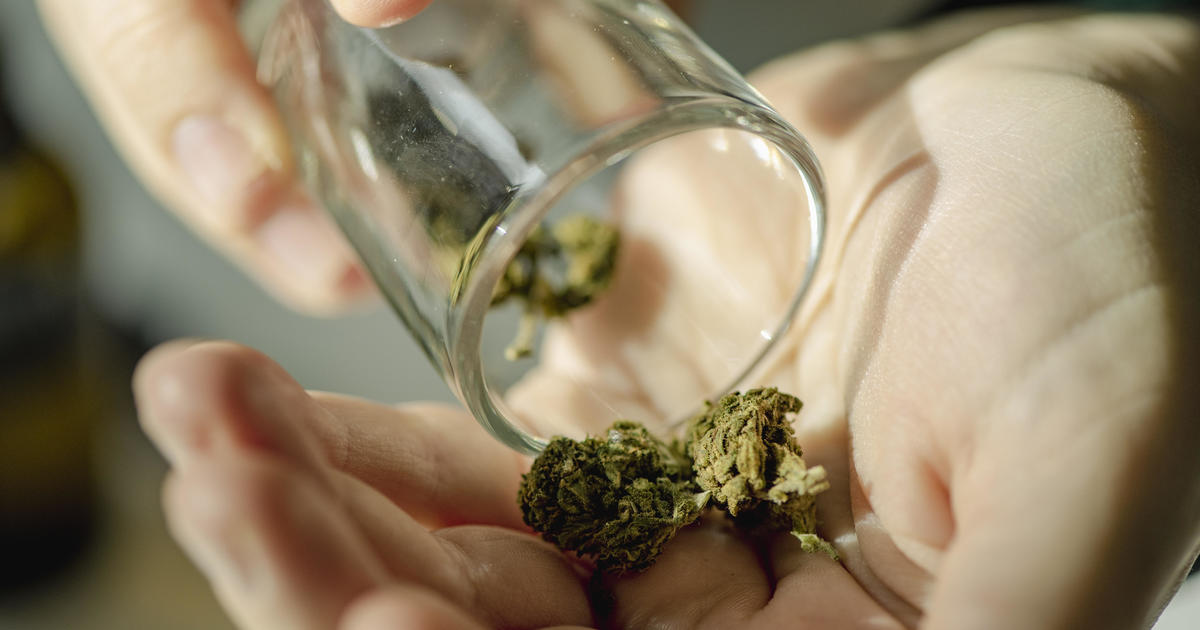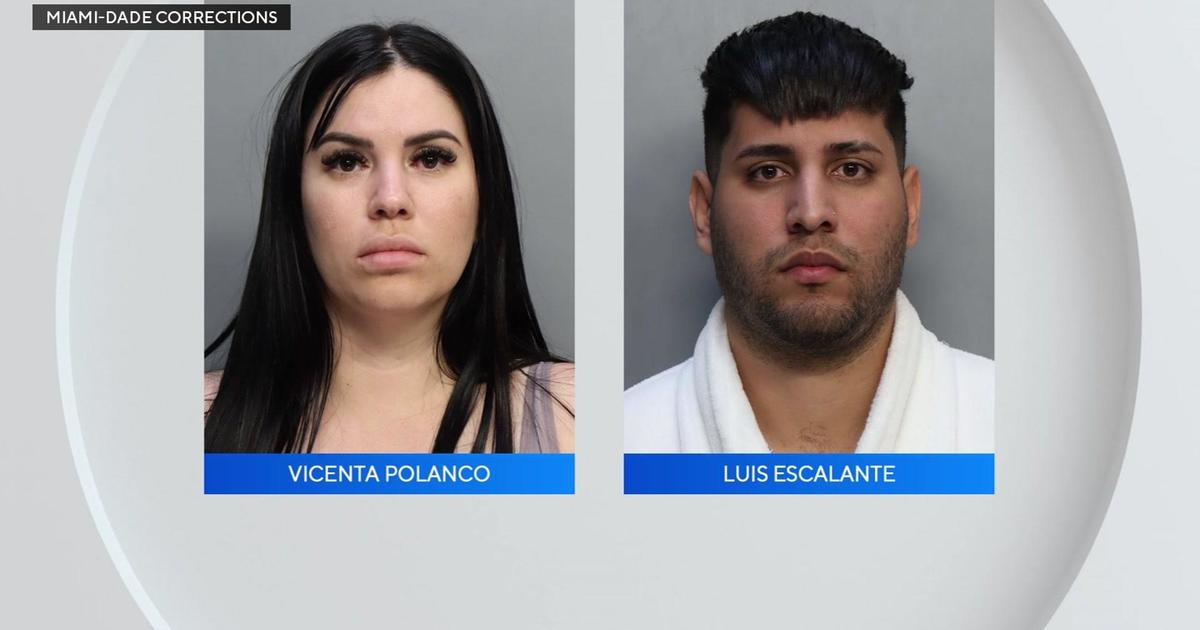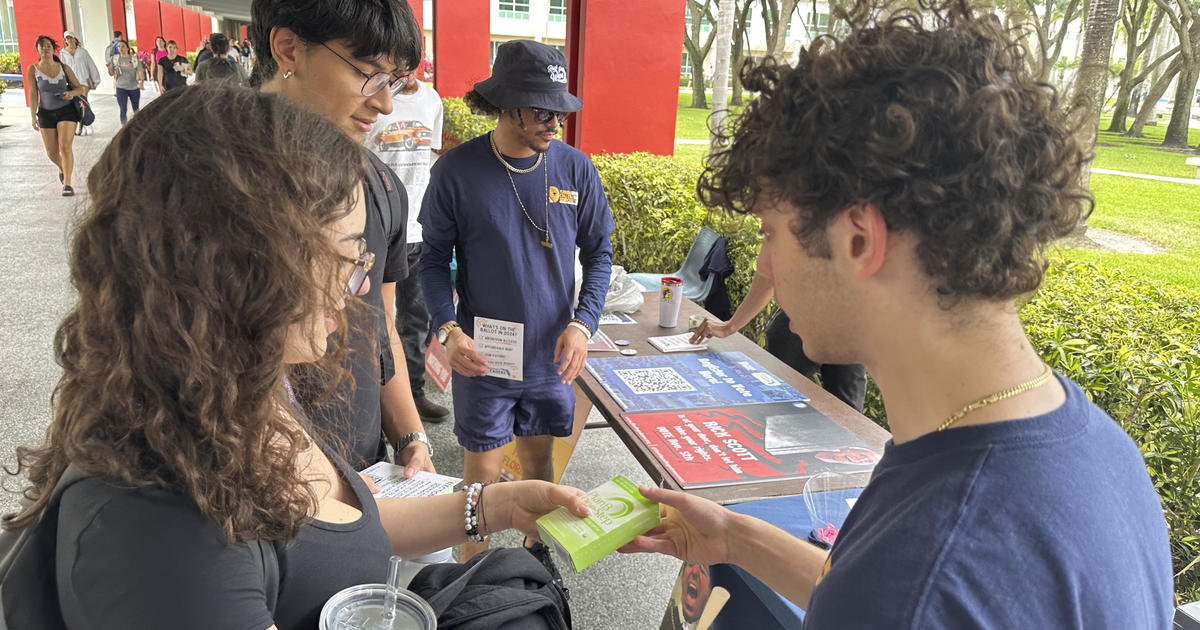Tougher Trump Stance On Cuba Delights Hardliners On Island
Follow CBSMIAMI.COM: Facebook | Twitter
HAVANA (CBSMiami/AP) — President Donald Trump's tougher stance toward Cuba has delighted hardliners on the island, who say it reveals the long-held U.S. aim of imposing American will on Cuba and justifies their wariness toward Washington.
The president's speech to Cuban exiles in Miami has also dismayed moderates who were working with pro-engagement Americans but now fear association with a policy of open hostility toward the communist system could make them targets for repression.
Trump and the Cuban-American Congress members who helped design the new policy pledged on Friday that it would block the flow of U.S. cash toward military-linked enterprises and direct it toward independent businesses, with the long-term aim of overturning President Raul Castro's government.
Members of Cuba's small but vibrant independent civil society say they fear the new policy will do more harm than good.
"Trump's become the independent business people's new enemy because — even though he's said he wants to help entrepreneurs — this new policy alienates entrepreneurs from the government," said Angel Rodriguez, a 27-year-old sociologist who works with the Catholic Church in entrepreneurship-training programs. "That could bring them under fire now, and they could find themselves much weaker."
Trump's new policy retains key aspects of Obama's reforms, leaving full embassies in Washington and Havana and letting U.S. cruise and airlines continue service to Cuba, although it will make travel harder by requiring most Americans to come in groups and banning payments to military-linked businesses.
Former President Barack Obama's 2014 declaration of detente with Cuba prompted hundreds of islanders to launch media, entrepreneurship and cultural projects that were outside control of the state but within the bounds of law, unlike the directly confrontational tactics of Cuba's small dissident groups.
Some of those new groups came under intense pressure during detente, particularly after Obama's May 2016 visit to the island. Despite bitter criticism and personal attacks, most have continued to operate, many with a degree of support from U.S. individuals and foundations that would have been impossible before the reestablishment of diplomatic relations.
Many government officials and their supporters saw the Obama policy as an attempt to lull Cuba into complacency and undermine the foundations of a communist system based in part of near-total control of virtually every aspect of society, from animal-rights groups to the film industry.
Trump's hostile language toward the Castro government and his literal onstage embrace of Cuban-American exiles and Cuban dissidents has unmasked the United States' true intentions toward Cuba and made it easier for the government to instill unity across Cuban society, pro-government figures said Saturday.
"Faced with your words, the Cuban people stand up and, their flag held high, sing their war anthem!" said a Facebook post by Jennifer Bello Martinez, the head of Cuba's official Federation of University Students and, at 25, the youngest member of the powerful Council of State.
"If I were the Cuban government I'd put Trump's speech up in schools. I'd transcribe it in the history books. I'd print a copy for every Cuban," said Iroel Sanchez, a pro-government columnist and blogger who was fiercely critical of Obama. "In less than an hour he showed Cubans how U.S. policy works ... The effect of this new policy will be strengthening the revolutionary leadership and seeing that it's right. This will galvanize things."
Among the few Cubans on the island who praised Trump was Berta Soler, a leader of the dissident group Ladies in White who said she was prevented by the government from flying to Miami to attend the speech in person.
"The Cuban regime will always find an excuse to blame the U.S. government," she said. "After detente the people felt hopeful but there were no changes. The relationship must have conditions."
One of the most criticized, though tolerated, projects that have flourished since the declaration of detente is Cuba Posible, a think tank and online magazine dedicated to creating space for amicable dialogue about the future of Cuba. Its founders frequently travel overseas, including to conferences in the U.S.
"President Trump's policy makes itself, once again, part of the old policy of pressure and strangulation of the Cuban people," founders Lenier Gonzalez and Roberto Veiga wrote Saturday. "It's a continuation of old dynamics of confrontation that are immoral, unjust and illegitimate."
The Cuban government has given Trump's speech extensive coverage on official media. A young state journalist who described himself as loyal to the government but eager to see faster, broader reforms told The Associated Press that the government saw the speech as "the best course in anti-imperialism that could be given."
"This is the dream of the hard-line here," the journalist said on condition of anonymity because he was not authorized to speak with the foreign press. "It's managed to unite the left and the center in Cuba."
___
Michael Weissenstein on Twitter: https://twitter.com/mweissenstein
Andrea Rodriguez on Twitter: https://twitter.com/ARodriguezAP
(TM and © Copyright 2017 CBS Radio Inc. and its relevant subsidiaries. CBS RADIO and EYE Logo TM and Copyright 2017 CBS Broadcasting Inc. Used under license. All Rights Reserved. This material may not be published, broadcast, rewritten, or redistributed. The Associated Press contributed to this report.)



